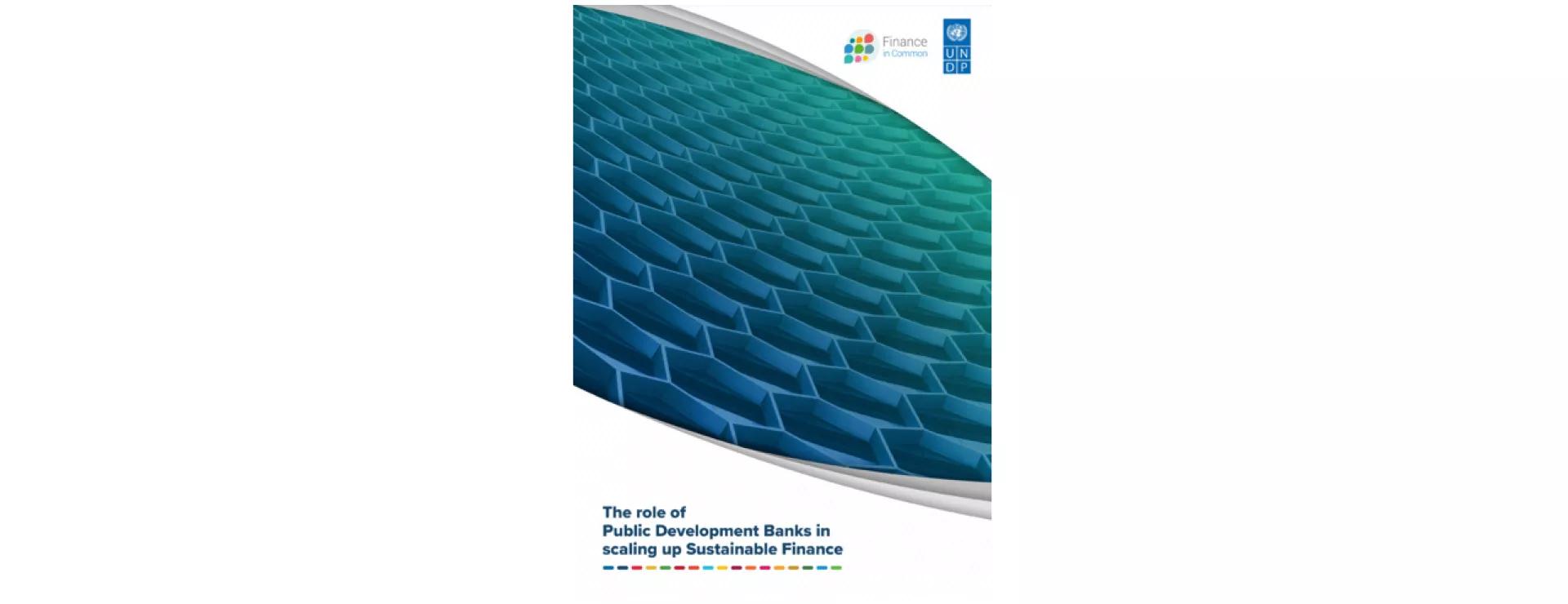The Role of Public Development Banks in Scaling up Sustainable Financing


Public development banks (PDBs) have a vital role in scaling sustainable financing in an affordable way. There are successful examples in all regions of how PDBs have delivered inclusive, equitable and sustainable growth with the right mix of strategy, instruments, data and collaboration. However, many challenges remain, and the report sets out what more PDBs, national and international actors can do.
The United Nations Development Programme (UNDP) and Finance in Common movement (FICS) joined forces to examine the vital role of public development banks in scaling sustainable financing in an affordable way, the good practices PDBs have already developed, and how national and international actors including MDBs, UN system and FICS, can enable and scale their work.
The research looks at the role of PDBs in scaling financing in an affordable way, the good practices PDBs have already developed, what they are seeking to do in the future and how national and international actors can enable and scale their work. In particular, it was focused on the issues as seen by national and sub-national PDBs predominantly in developing countries. The research sought to identify a clear set of recommendations based on the views of the PDBs themselves for what could enhance their ability to align to the SDGs. These recommendations could be for: governments (national-/subnational-level and G20/non-G20 members), PDBs themselves, MDBs, bank coalitions/networks, regulators, credit rating agencies, technical assistance providers and development partners.
From this report, the findings show that the importance of aligning finance with the SDGs and the Paris Agreement is clear, but it is crucial that we ensure effective collaboration between PDBs either in advanced or developing economies, coordination with MDBs, and the commitment from the development community.